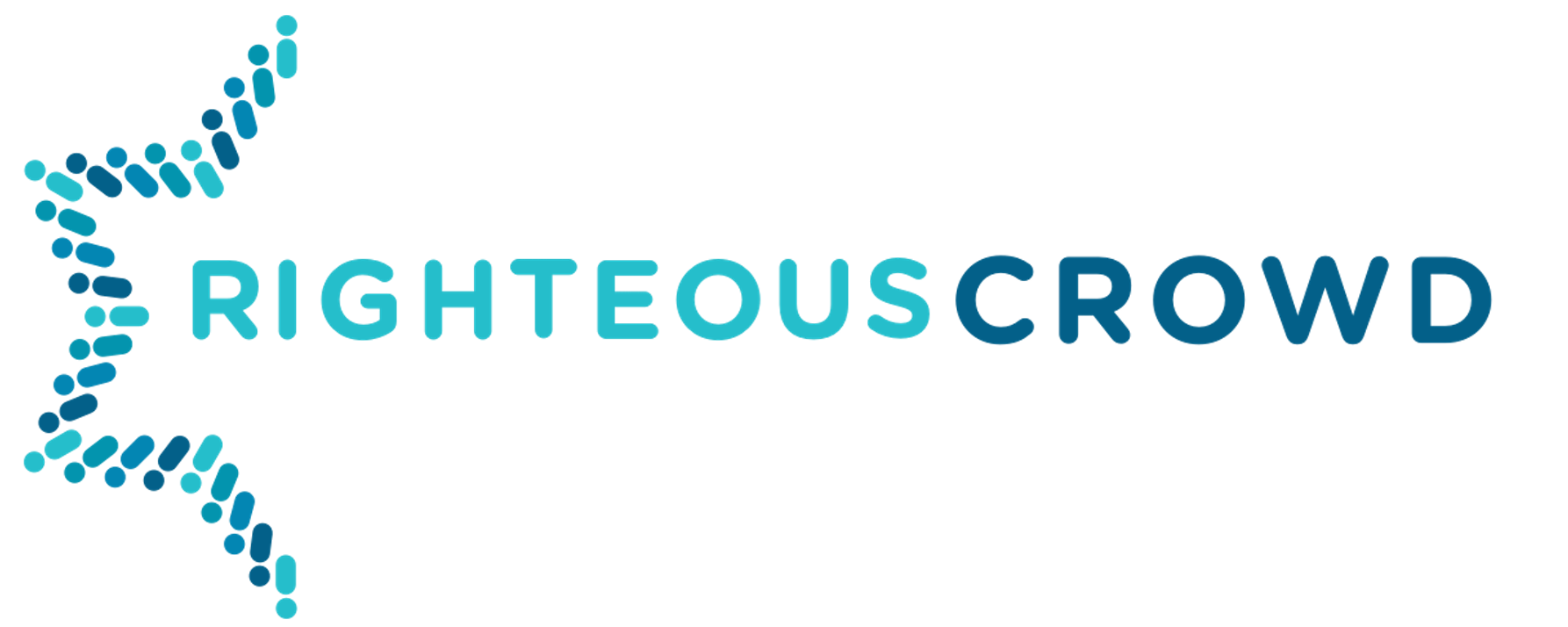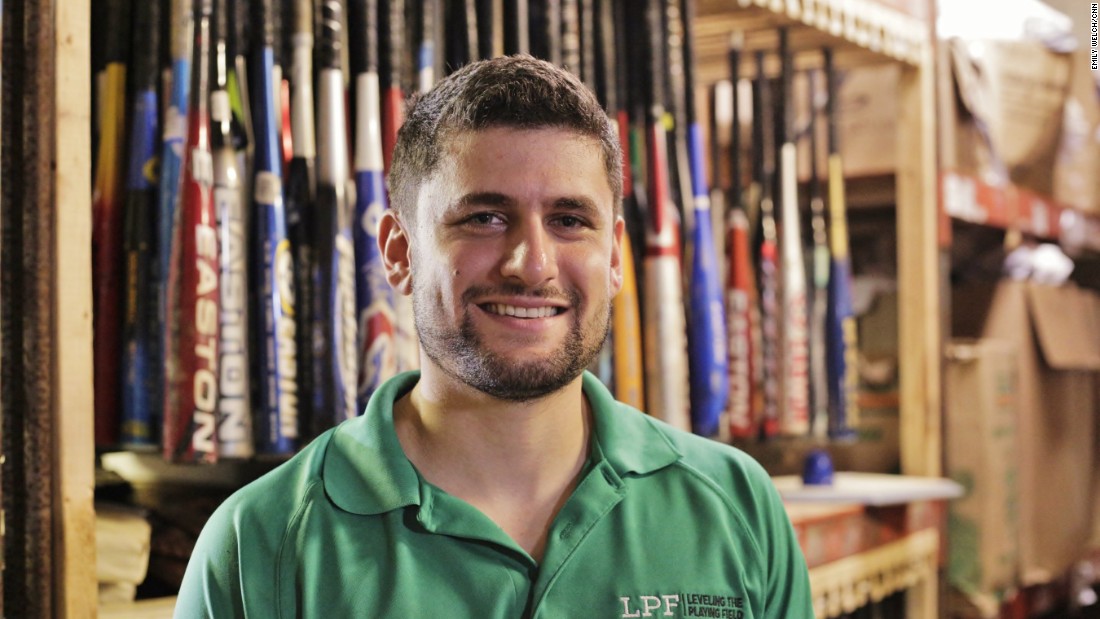Max Levitt, Founder and CEO of Leveling the Playing Field
Leveling the Playing Field
Equipping Kids for Success
Yesterday was Lag B'Omer, a Jewish holiday celebrating the 33rd day of the Counting of the Omer. The counting begins at the second Seder and concludes with the holiday of Shavuot. Customs of Lag B'Omer include lighting bonfires, getting haircuts and sports days in Jewish schools. We are featuring an organization that collects sports equipment from collegiate athletic departments, county recreation departments, families and individuals and gives them to programs and schools serving low income communities.
Read our interview below with Founder and CEO Max Levitt.
What is the mission of Leveling the Playing Field?
Leveling the Playing Field (LPF) gives underprivileged children the opportunity to enjoy the mental and physical benefits of youth sports participation. We do this through the donation of used and excess sporting equipment to programs and schools that serve low-income communities. Our donations allow programs to allocate saved funds by lowering registration fees, expanding their scholarship programs, and enhancing their existing athletic program and/or developing new programming.
How would you connect LPF to a Jewish Value?
My Jewish upbringing and the Jewish values that were instilled in me through that upbringing had a profound impact of my starting this organization. I grew up attending a Jewish Day School, visiting the local JCC every day, being involved in the Jewish Federation and attending a Jewish summer camp. Judaism and its values were a part of my everyday life. The most consistent value that my parents hammered home was the value of Tikkun Olam. I was raised in a very fortunate situation with plenty of opportunities at my disposal. My parents made a conscious effort to use Tikkun Olam as a way to ensure that I was well aware of the uniqueness of my upbringing and that I understood that there were those on the other end of the spectrum who had so few opportunities growing up. It was a consistent activity in our household to volunteer, make food for the homeless or donate items throughout the house to various nonprofits. The key theme of Tikkun Olam in my house was around the importance of giving back to those less fortunate and that importance was even more pronounced BECAUSE I was so fortunate in my situation. Without that knowledge and experience understanding how severe the struggles are for low income families, I would never have thought to myself that a nonprofit would be an effective way to take advantage of this extreme waste of sporting equipment that I noticed throughout my career in the sports industry.
What are some non-monetary ways for others to get involved in LPF?
We are always looking for folks to collect used sporting equipment for our cause. Over 90% of the almost $2M worth of equipment that we collect every year come from individual family's garages. In order to bring that gear into our warehouse, we rely heavily on volunteers to go out and engage their communities around our mission through collection drives. We are also always looking for volunteers to help sort equipment in our warehouse. (If you are not in our geographic area, then research what organizations might be in your community)
Why did you decide to start/support your organization?
I founded LPF my senior year of college based on my experience working as an equipment manager with the Syracuse University Football Program as an undergraduate. I became concerned about the unnecessary disposal of perfectly usable sporting equipment on the collegiate level and noticed similar waste going on in the youth sports industry, where I worked over my summers. And, after also learning about the decline in youth sports participation among low income communities and the prominent role the high cost of sporting goods was playing in that decline, I decided to essentially start a food bank for sporting equipment. Sports have always been a central passion of mine and as a child I played almost a dozen sports over the years. Every day after school, I organized some sports activity and my summers were filled with sports camps. I cannot imagine how different my childhood would have been without athletics. It certainly would have been less fulfilling and fun without sports. So my passion for youth athletics, knowing how it enhanced my life, motivated me to dedicate my life to ensuring that every child has that same opportunity, regardless of economic situation while growing up.
Who or what has inspired you in the work that you are doing?
The multitude of community programs and community leaders that we work with every day are my number one inspiration. Every time I have the fortune of seeing a community leader enter our warehouse to get equipment for their kids and having deep conversations about the issues plaguing their respective communities is incredibly inspiring and motivating. I have been blown away by the level of commitment these leaders and programs have to bettering their community with so few resources at their disposal. I feel incredibly fortunate to be in a position to help these great folks access much needed resources at no cost. I am also inspired not just by the joy on the kids’ faces when they see the equipment they will now be able to take home with them, but even more so by the reaction from the parents who feel an incredible stress and guilt from not being able to provide their kids with the equipment they need. It is clear from dealing with them how profoundly they appreciate the opportunity we are providing their kids and the weight that our donations take off of their shoulders.
What’s a story about your organization that is meaningful to you?
There are literally hundreds to tell, but one of my favorite has always been our work with the Latin American Youth Center in Langley Park, Maryland. When the program approached us they were really struggling to engage the youth in this community around a youth development program aimed at combating gang participation, drug/alcohol use and sex education. We worked with their program to begin a community wide soccer program as an incentive to engage the kids in their youth development programming and as a tool to instill the valuable life skills they were trying to teach. After donating over $5,000 worth of soccer gear they were able to start the program and a few months later had reported not just an increase in participation but now a need for additional funds to engage even more kids because they had developed a waiting list. It was a perfect example of the power youth sports can have for these great youth development programs clawing to engage as many kids as possible in their programming.
What has surprised you about working with your organization?
The biggest surprise and the main factor in our success has been the overwhelming support from the local community. The amount of equipment that comes into our warehouse from the more affluent families in our community has been way more robust that I could have ever imagined. The same goes for the number of families who contact our offices on a daily basis looking to get more involved with our mission on a volunteer basis. We have over 500 equipment donors on a yearly basis and over 750 volunteers work in our warehouse every year. We hear mostly from families but we also have corporate volunteer groups in multiple times a month as well as numerous groups from schools, religious centers and camps. That support has been incredible, surprising and consequential.
What's the best part of your job and why?
The best of my job is actually dealing with the more affluent side of the coin (which is usually the other way around for nonprofit founders). As much as I love helping the kids in need and feel so lucky every day to be able to do that for a career, I love the opportunity to instill the value of philanthropy in young people who were just like me at their age. I have found sports to be a powerful vehicle to teach young people about not only recognizing how fortunate they are, but also grasping the responsibility they have in that situation to give back to those less fortunate. I was lucky to have those ideals instilled in me at a young age and it has obviously made me a more socially conscious citizen. If I can do that for more future leaders I think the world will be a better place.
To learn more about LPF visit www.levelingtheplayingfield.org.

